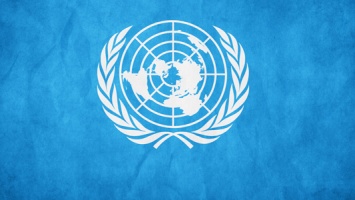- About
- News
-
Advocacy
- Accountability & Litigation
- International Advocacy
- National Advocacy
- Documentation
- FAI Unit
- Al-Haq Publications
- Library


- About
- News
-
Advocacy
- Accountability & Litigation
- International Advocacy
- National Advocacy
- Documentation
- FAI Unit
- Al-Haq Publications
- Library

 During the 4th and 5th of October 2016, Al-Haq participated in expert roundtable consultations convened by the UN Special Rapporteurs on the Right to Food and on Human Rights and Hazardous Substances and Wastes at the UN Office of the High Commission of Human Rights in Geneva. The two special rapporteurs are seeking input for an upcoming joint report to the Human Rights Council in March 2017 and a report on good practices in the context of the human rights implications of hazardous substances and toxic wastes.
During the 4th and 5th of October 2016, Al-Haq participated in expert roundtable consultations convened by the UN Special Rapporteurs on the Right to Food and on Human Rights and Hazardous Substances and Wastes at the UN Office of the High Commission of Human Rights in Geneva. The two special rapporteurs are seeking input for an upcoming joint report to the Human Rights Council in March 2017 and a report on good practices in the context of the human rights implications of hazardous substances and toxic wastes.
The Al-Haq fellow in attendance provided perspectives on human rights violations in the context of the Occupied West Bank, in particular, raising the unique implications within the framework of belligerent occupation and protracted conflict, including the Fourth Geneva Convention, Additional Protocol on the Protection of Victims, Hague Convention and Rome Statute. The fellow highlighted specific examples of the toxic contamination of the air, water and soil leading to devastating health and food security implications for Palestinian rural and urban communities, including in:
- the Jordan Valley, where pesticide run-off and dumping of used pesticide containers are implicated in the poisoning of lands used by Palestinian pastoralists for grazing livestock; and
- the Governorate of Tulkarm, where the development of the illegal Israeli settlement of Nitzane Shalom includes several chemical manufacturing facilities, such as the pesticide company Geshuri & Sons, that operate without regard for Israeli or Palestinian environmental and labour laws.
The Al-Haq fellow explained how the expansion of the Nitzane Shalom settlement onto land used by Tulkarm residents for grazing livestock and subsistence farming, as well as the resulting contamination of the surrounding soil and water has direct implications on the food security of Palestinian families. In addition, rates of cancer are anecdotally higher in the direct vicinity of the factories, with cases of childhood leukemia being recorded. With several schools serving nearly 11,000 Palestinian children within 500 metres of the industrial zone, the fellow also noted the particular implications on children’s rights to health and life.
Information documented by the Palestinian Environmental Quality Authority about Tulkarm has confirmed that the dumping of sludge onto the surrounding Palestinian residents’ land by the industries has led to elevated levels of furans, dioxins and PCB residue in the soil, while the spewing of emissions specifically from pesticide manufacturing, has led to elevations in noxious SOx and NOx (2015). Known health impacts of exposure to these chemicals include: skin disorders, liver problems, reproductive and infertility problems (including miscarriages, premature and still births, and low birth-weight babies), damage to the immune system, endocrine disruption, exacerbation of asthma and lung problems, chronic respiratory illnesses, hypertension and other cardiovascular problems, and cancers.
Although the Israeli Civil Administration does not disclose information about the specific chemicals handled and manufactured inside the settlement, anecdotally, methyl bromide and methyl isocyanate are among the components used in relation to pesticide production. Al-Haq noted with concern that methyl isocyanate is precisely the gas implicated in the chemical leak at Union Carbide’s pesticide factory in Bhopal, India, which in 1984 resulted in the poisoning of nearly half a million people, deaths of 25,000 people and ongoing debilitating illnesses still affecting more than 150,000 people, including children. With lax health and safety regulation and no oversight at the factories in Nitzane Shalom, the risk of a deadly accident due to a leak or faulty equipment remains a reality.
During a recent field visit to the site, Al-Haq field researchers documented the existence of European branded products inside the factory complex. In light of this concerning finding, the Al-Haq fellow affirmed that all international chemical companies are legally duty-bound to verify if they are in any way connected to sustaining Geshuri and other industries located inside the settlements, or if their products are among those being illegally dumped in the Palestinian Territories and to take action to ensure they are not complicit in such situations. In providing overarching recommendations on the issues of the right to food and the implications of environmental contamination during the UN Special Rapporters’ consultation, Al-Haq highlighted that until and unless Palestinians have rights to self-determination, and all settlements - including Geshuri - are dismantled, with land being remediated and returned unconditionally to rightful Palestinian owners, access to effective remedies holding those accountable for violations of rights to health, food and the environment will not be possible.